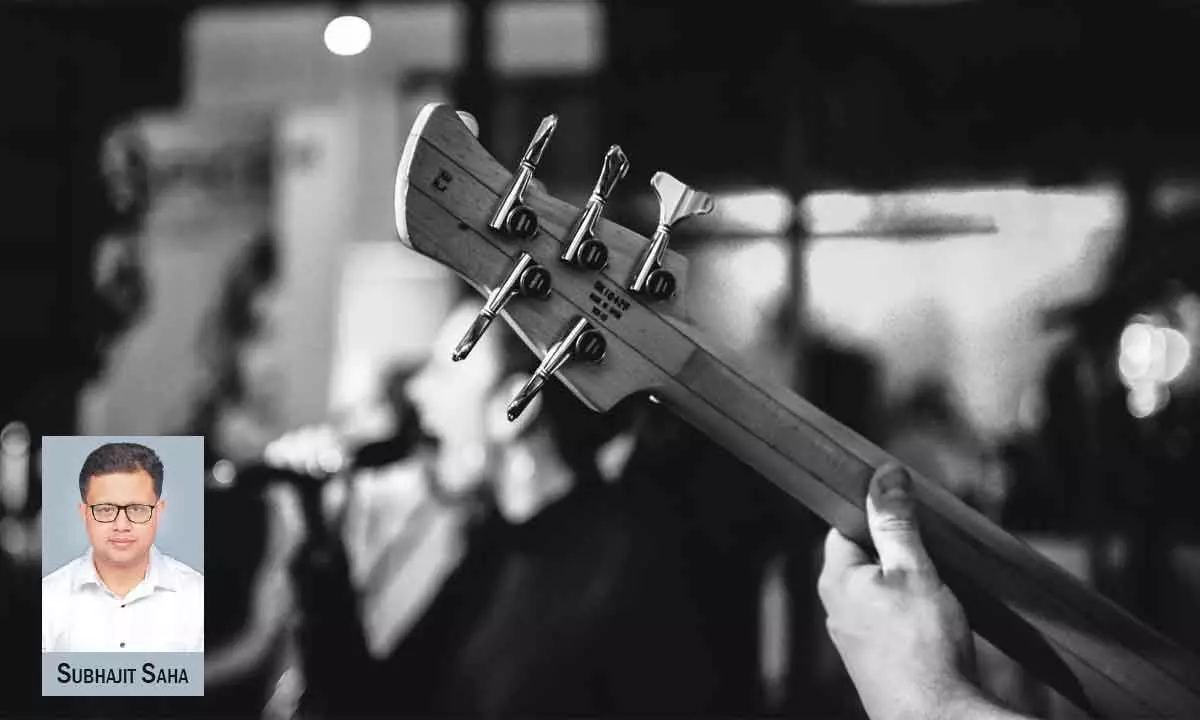Indian music goes global: Singers to get royalties in UK copyright deal
Now, Indian performers will receive royalties for their music played in the UK, giving them a fair remuneration system for their creative contributions to the global music industry
image for illustrative purpose

Indian Intellectual Property Rights ecosystem is at its all-time high. It’s been a milestone year for Indian Patent office with crossing 75,000 patent grants on the eve on 75th Republic Day in 2023-24. The journey has been a roller coaster one for both the inventors and the patent office. This exciting time is here to stay, and India is on the right path to cross 1 lakh patent grants by the year 2025. Currently, we are sixth in the world in Patent filings and third in Trademarks filings. The Indian IP office has done some remarkable work in the last five years to make this happen, but also, kudos to all the Patent applicants, inventors, patent agents, and attorney who have contributed relentlessly for this growth journey.
On the other side, there is music for the ears of copyright holders with Indian singers and musicians have secured their rights in the UK by collaborating with the UK Collective Management Organization (CMO) for performers and recording right holders. This is a welcome step to the copyright owners as this means that Indian performers will receive royalties for their music played in the UK, giving them a fair remuneration system for their creative contributions to the global music industry. This arrangement will help Indian singers and musicians to receive 25 per cent of the public performance revenue from sound recordings collected by the UK Collective. India has one of the finest copyrights acts in the world and now with such arrangements the enforcement of copyrights is going to be more robust on the global platforms.
Several patent amendments rules in the past with the latest being the proposed Draft Patent Amendment Rule 2023 will further play a key role in the faster grant of the patents and disbursal of new patent applications by the patent office. A few important highlights proposed in the draft patent rules are the lowering the time frame from 48 months to 31 months to file the request for examination, reduction in the timelines for response in patent opposition matters from three months to three months will alleviate this count of grants in the coming days. The expedited examination available for women innovators and startups has been a silver lining in the patent system practices and procedures.
Earlier a patent grant used to take 5-7 years and today in a smooth sailing case, it is taking 2-3 years maximum to get a grant. Another welcome move for the increase in filing was the reduction in the fee for educational institution by 80 per cent which has encouraged academia to file for more patents.
To conclude, the growth curve for Indian patent system will rise by the coming years with the draft patent amendment rules 2023 round the corner covering revised timelines, the addition of Form 31, for advanced public disclosure if any before filing to avoid anticipation of public display under section 31, faster opposition proceedings and disbursals, extension of time and changes in fee structure will do world of immense good for the innovators, innovation and intellectual property ecosystem in India.

